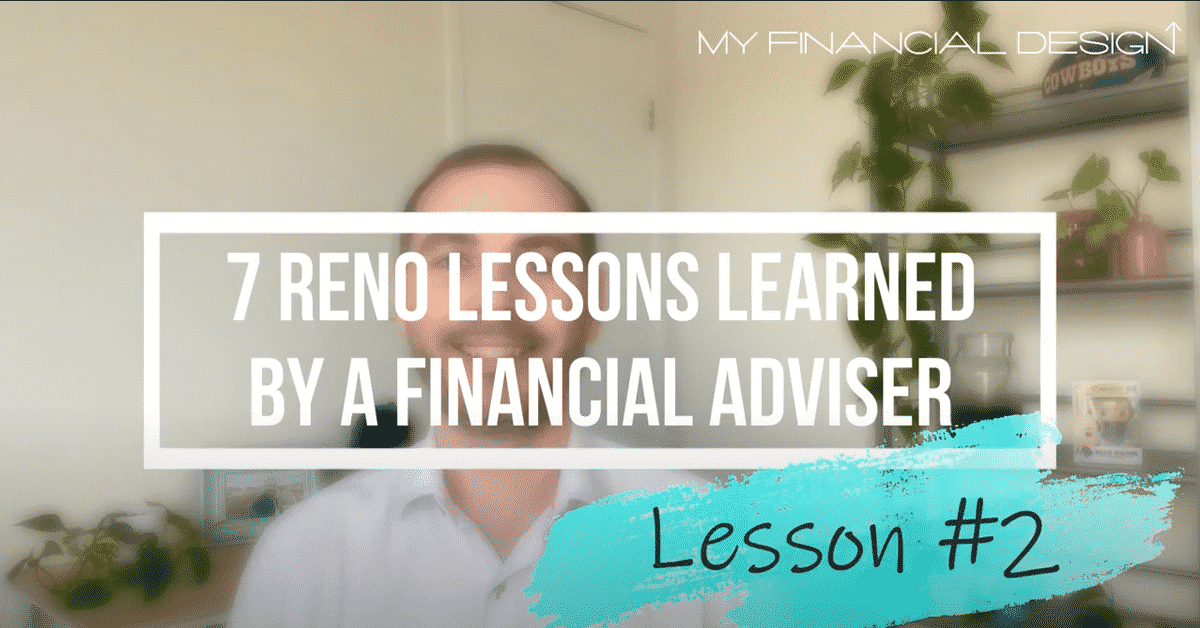Brisbane Financial Adviser, Luke Hanson of My Financial Design, shares lessons learned renovating his investment property. Today is part 2 of the series. . . . .
Hello, welcome back to the series 7 Renovation Lessons Learned by a Financial Adviser, which is me, Luke Hanson, Director at My Financial Design. We’re up to lesson number two, which is muster your money. So at the end of the first lesson, which was get your game plan together, I mentioned that you want to have a bit of a budget strung together. So not necessarily the details, but a bit of a soft estimation of what you think the total budget is going to be for the renovation. So at this point you might have identified a round figure that you’d like to spend on your renovation. Now it comes time to where is that money going to come from? So it may be that it’s a savings goal that you want to reach. It may be that you need to access some borrowed funds, perhaps refinancing your home loan or drawing out equity, or a range of options you can go through. But really this is the point of your renovation. The very start early point that you want to make sure you’ve got enough funds to do what you want to do. So for me, it was about borrowing some money refinancing and taking on an extra loan as part of my investment property. But you may be surprised to hear that it actually took months and months and months to get that finance in order. So the bank required two separate valuations of the property over a six month period. I then went away and got married and went on a honeymoon and kind of put things on hold for a couple of months and restarted it back earlier this year. So what I thought would be a pretty straightforward process and, you know, I, wasn’t taking a huge sum of money out, but actually just to get that money out of the bank, as part of the refinance, was a really big deal. So if you’re planning to refinance, keep in mind that you may need to go through a bit of effort and paperwork and struggle to get that loan approved. So don’t leave it til the last minute. You want to have that established early on. And likewise, if you saving up, you know, if you’re going to be saving for your renovation costs, it may take six, 12 months to save up that money. So have a bit of a game plan early on, but then make sure you spend some time determining how are you going to muster that money and really be clear about that so that when it comes time to quoting and setting your final budget, you really know what those parameters are. So lesson number two, muster your money.


